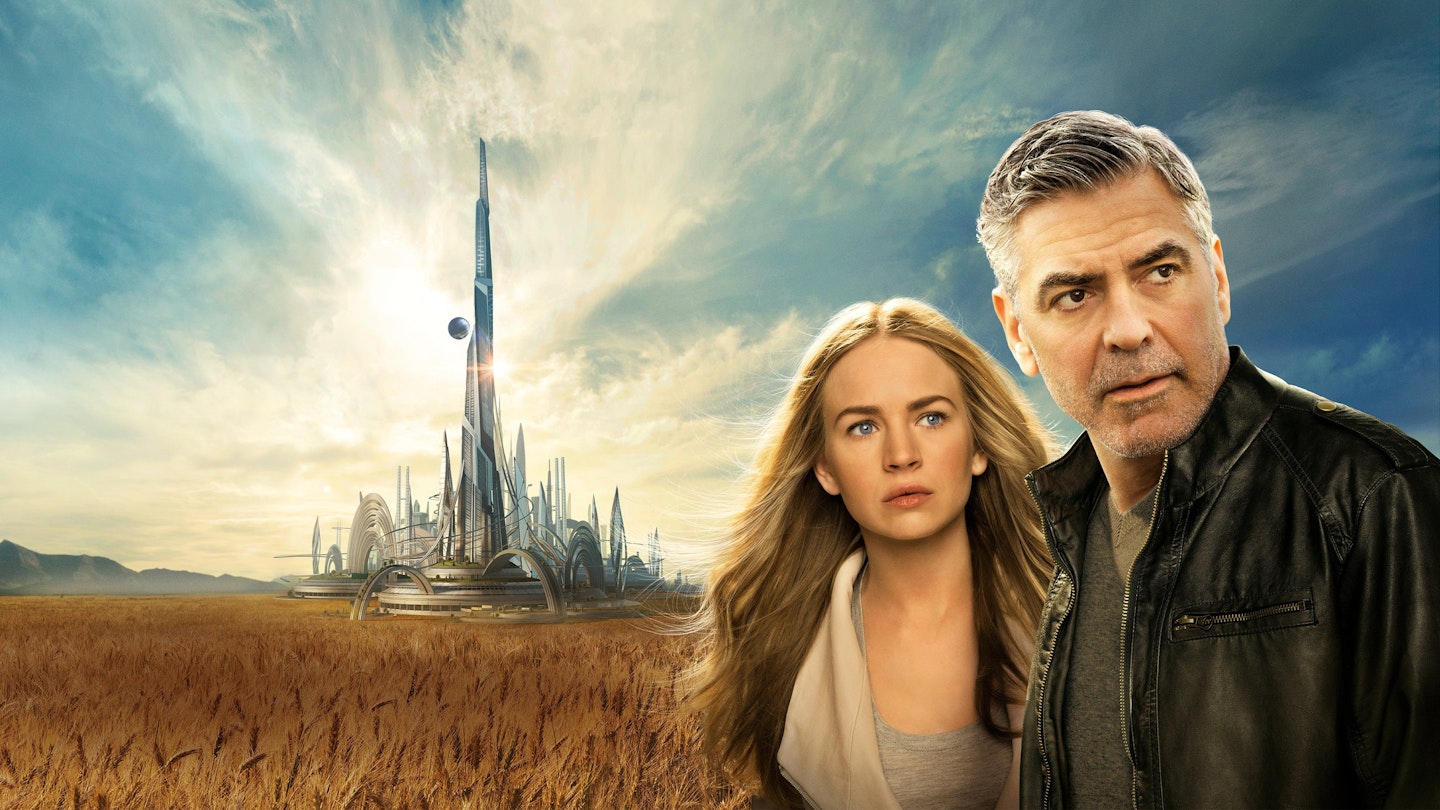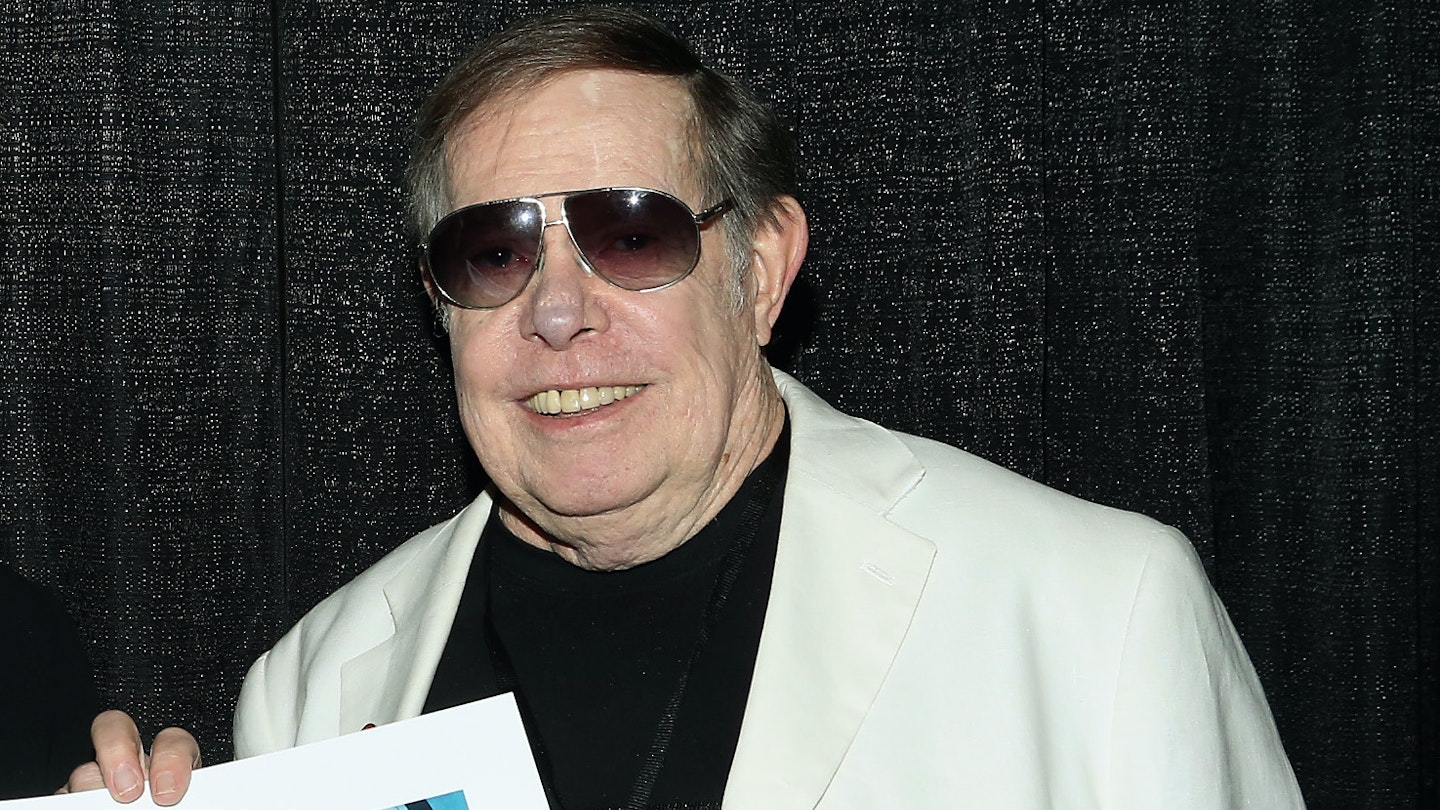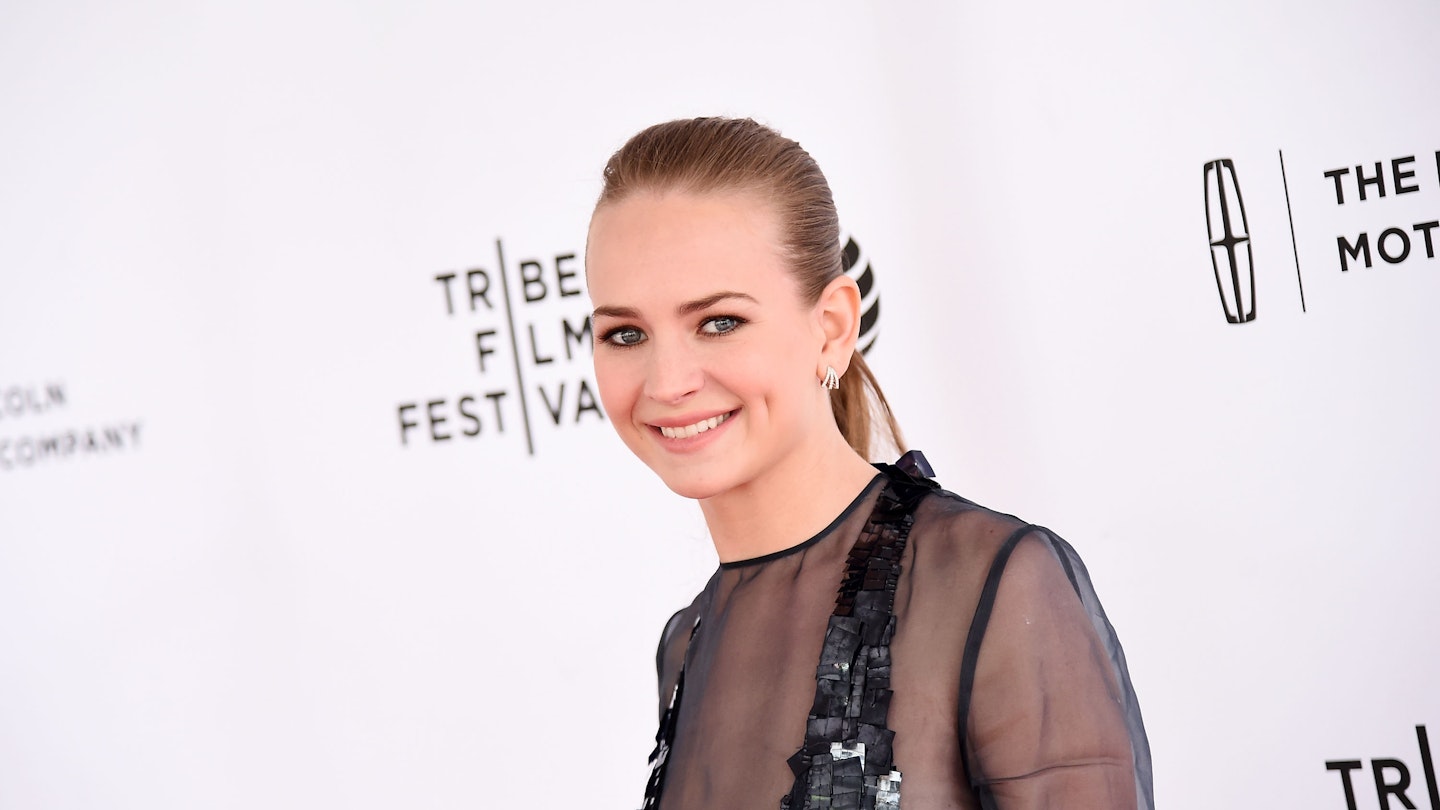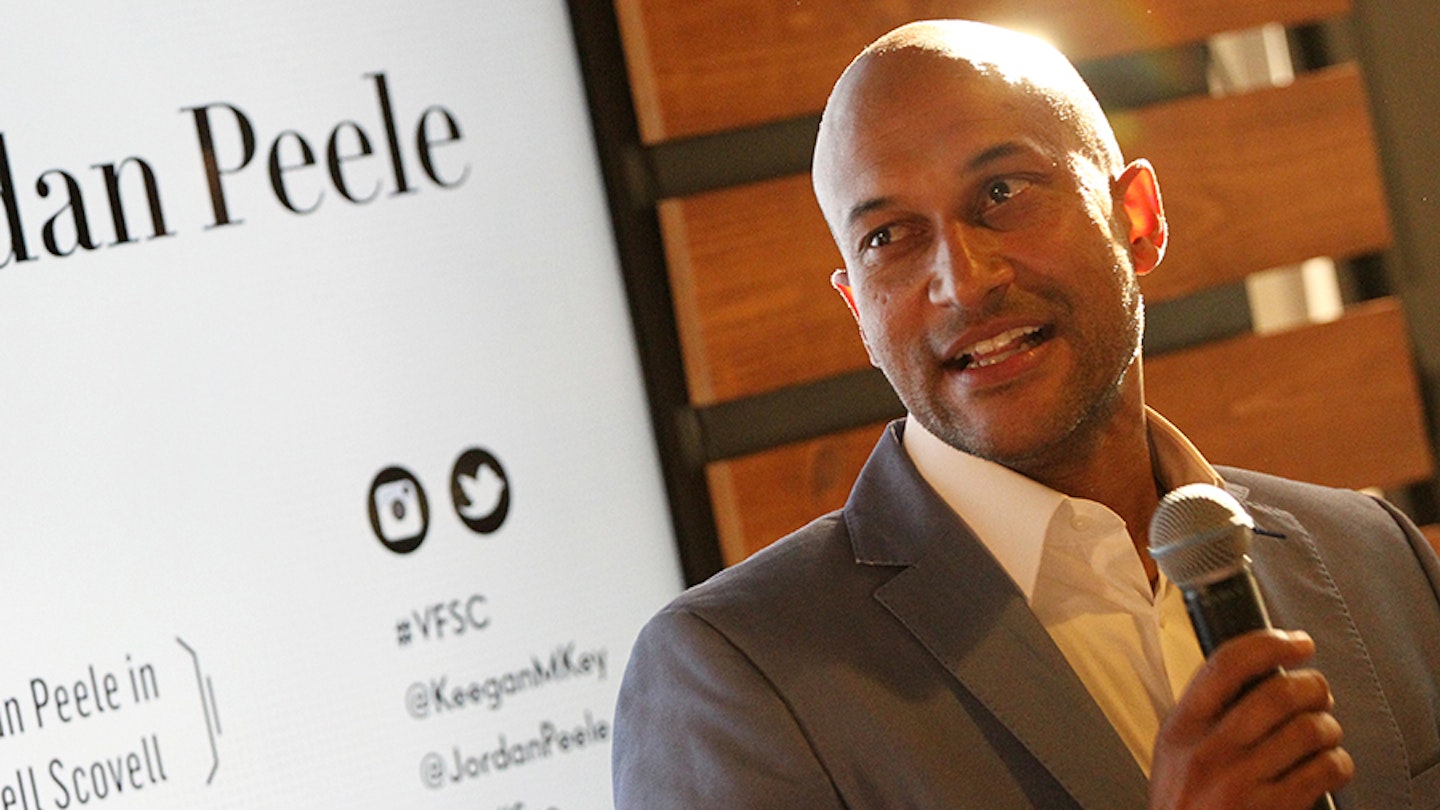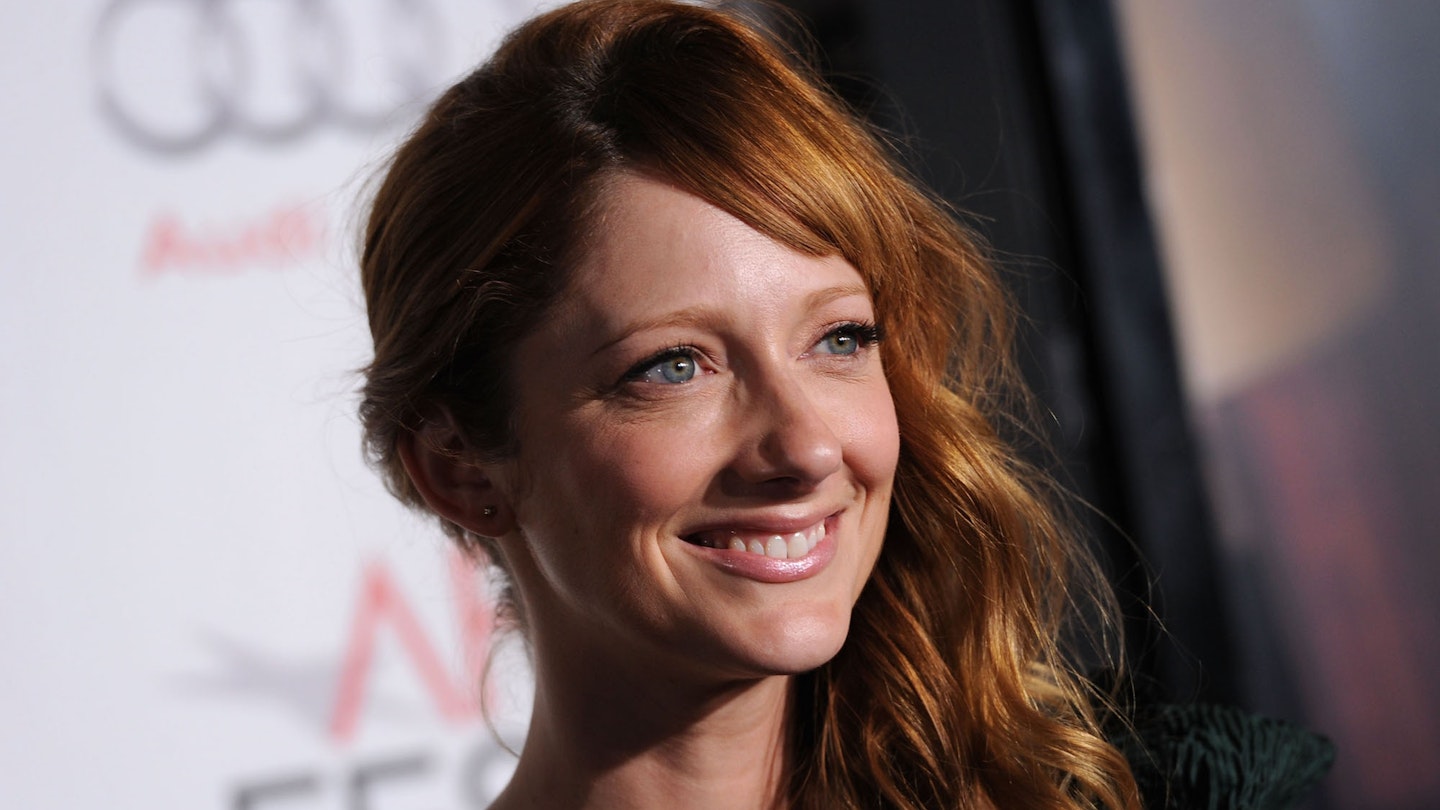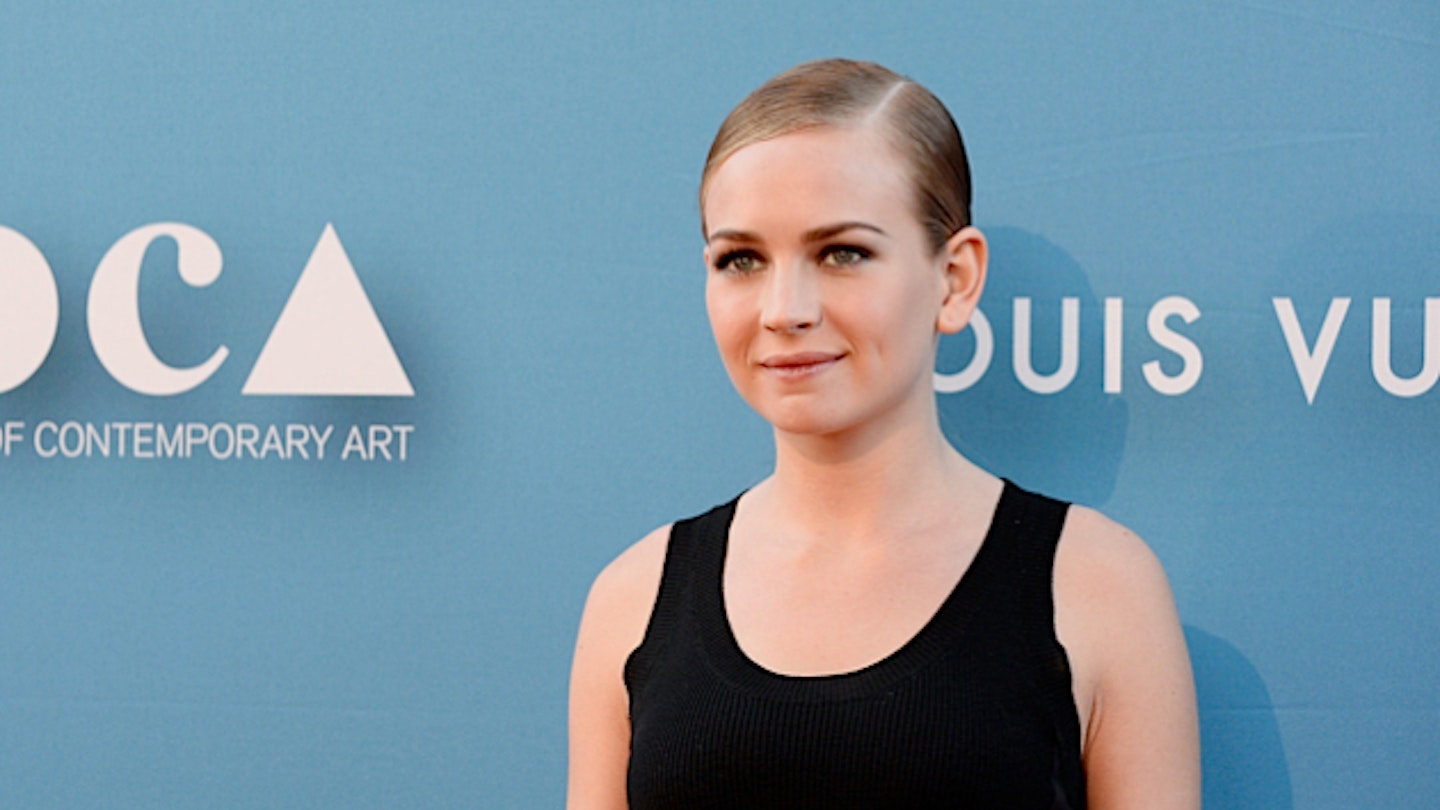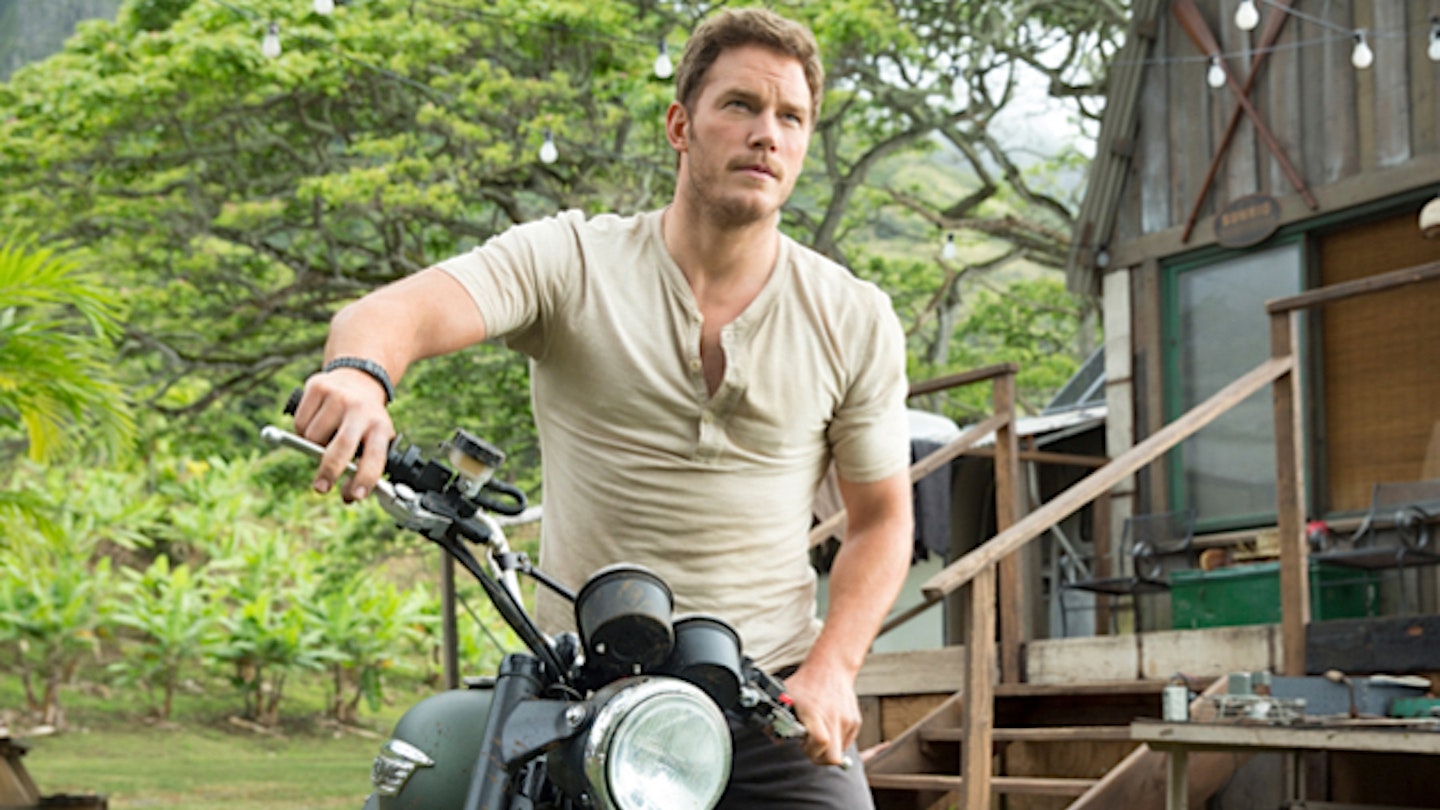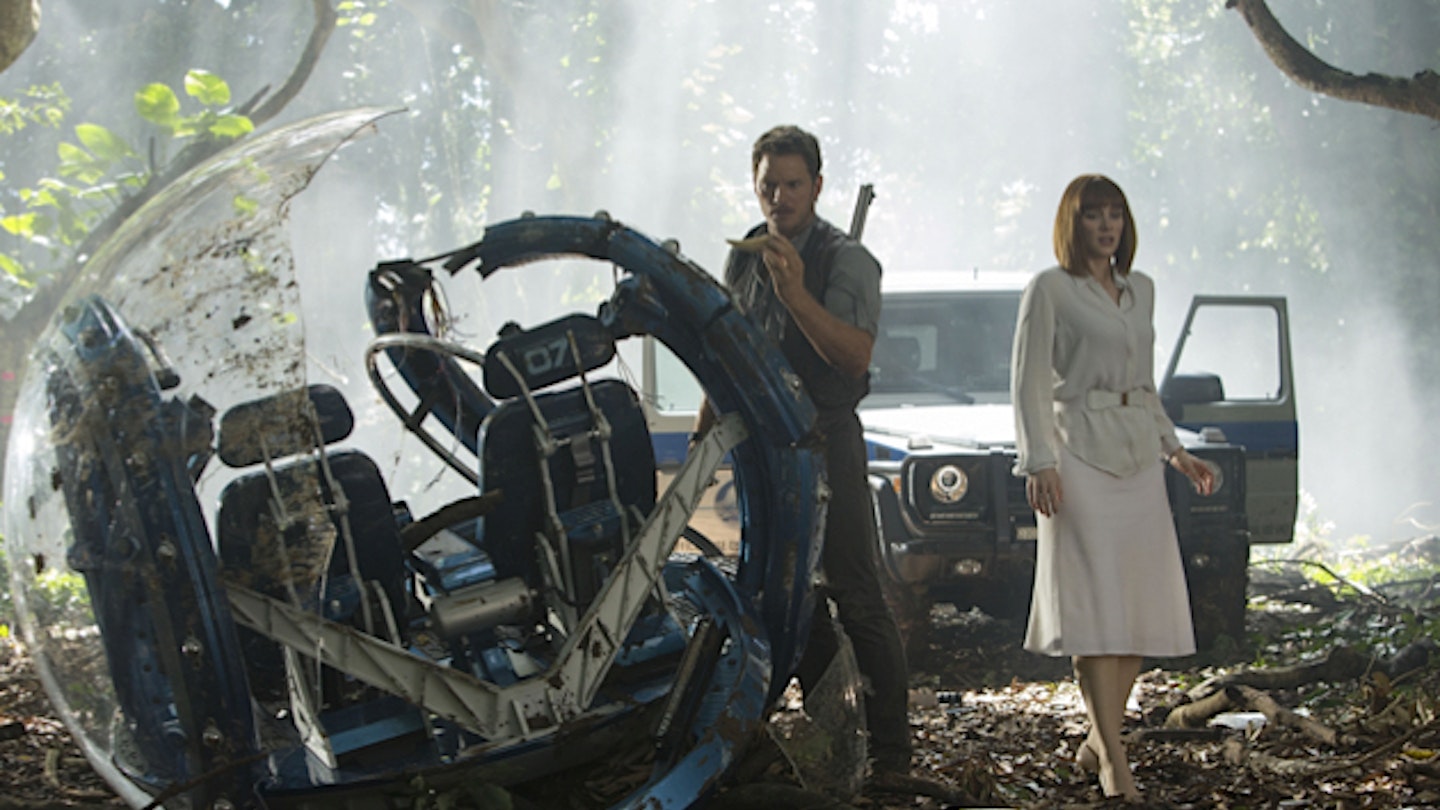There are two ways to view the use of theme-park rides as inspiration for movies. The first, held by many, is it represents a dearth of ideas and a grab for anything with a smidge of brand recognition and, therefore, a small leg-up at the box office. But there is another, less cynical view and it’s embodied by Brad Bird’s sugared-up, awestruck adventure: if you start with something that fires kids’ imaginations, but has no inherent plot, you have no limits. The lack of defined story makes the plot possibilities endless, and there is nothing more exciting than an unfettered mind.
A vague brief means freedom. Tomorrowland is technically not even based on a ride; it’s based on an entire theme-park zone. Walt Disney made Tomorrowland part of the original Disneyland in 1955 to represent a future crackling with potential. He believed that the next day would always be better, more thrilling and more full of blinking lights and beepy robots than the last. So why, asks Bird, has the future become something we fear? When did it stop making us dream of wearing jumpsuits on the moon and start making us look for a place to hide when the end comes?
Bird’s story is told via Casey (Britt Robertson) and Frank (George Clooney). Frank was a child brimming with the wonder of science. A visit to the 1964 New York World Fair to show off the jetpack he invented, which almost worked, introduced him to a shady Steve Jobs/Walt Disney character (Laurie) and, somehow, a hidden futuristic world. Then, for reasons not initially revealed, he grew into a right old grump — going into hiding and depriving the world of his brain. Casey has what Frank lost. She believes that anything is possible, what’s broken can be fixed and that the best-case scenario is no less likely than the worst. Given a mysterious pin that transports her to the alternative world Frank once knew, she determines to find out what, where and when it is.
This is all in about the first 20 minutes and we’ll leave the set-up there. Tomorrowland is a film that benefits from little knowledge before you buckle in, which is good, because trying to explain its plot would take up the rest of this review. If that sounds like a negative, it is not. Bird and screenwriting partner Damon Lindelof (co-creator of Lost) have constructed a story in which you really don’t know what’s going to happen next. It’s a rare thrill. In so many family action films the best you can hope for is a multiple-choice option — will the hero beat the villain now or in around 25 minutes? Yet here there is constant surprise, interesting ideas, and Bird’s enthusiasm as a director never lets up.
Bird has always directed with a natural wonder and curiosity. He’s the sort of filmmaker who grabs your hand, gasps, “You’ll never believe what’s over here!” and then drags you there, running and breathless. He’s like a very clever little boy who needs to get everything out of his head before he bursts. Half the shots in the film seem to be pointed upwards to reinforce that sense of childish amazement. There is one sequence, in which Frank’s heavily booby-trapped house is attacked by evil, grinning robots, that crams in so many mad, exuberant moments of invention that you immediately want to go back and watch again to catch the detail you missed. Bird revels in his world.
Despite all the futuristic business, there is a retro tone. Tomorrowland harks back to a time before the prevailing cinematic mood was one of darkness and grit. Here are flavours of Back To The Future, The Goonies, The Rocketeer, and non-specific Spielberginess. If there’s such a thing as ‘an ’80s feel’ then this has it, and if it’s possible to define it, then it’s the belief that kids are the ones who best understand the world and all its potential weirdness, and adults who have become foolish through loss of curiosity.
Uncharacteristically for Bird, the relationships don’t stick together as well as they might. This has always been one of Bird’s strengths as a filmmaker: he made a giant robot a curious little brother in The Iron Giant; he detailed the struggles of a marriage through superpowers in The Incredibles; he gave a rat daddy issues in Ratatouille. But there isn’t that depth and lightness of touch here. Casey’s relationship with her dad is much more discussed than shown, and the bruised friendship between Frank and the little girl (Raffey Cassidy) who brought him to Tomorrowland feels in need of a few more scenes to cement it — though their final exchange offers the best, most resonant line of the movie.
All the cast are on spirited form. We haven’t seen Clooney in this kind of summer blockbuster since (whisper it) Batman & Robin, and he appears to be having a much better time here, bringing hints of Everett McGill’s madcap nature in O Brother, Where Are Thou? — only in a worse mood and not nearly so dim. Britt Robertson is an equal treat, finding the sweet spot between confidence and confusion and showing strong comic timing. Cassidy works well as the de facto adult, despite being pre-teen.
It may be incredibly mean to criticise a movie so packed with ideas for not having enough, but the rocket runs out of fuel towards the end. Lindelof has always been great at set-ups, but less so with conclusions. He and Bird settle on an ending that’s by no means poor, but it doesn’t delight like everything it follows and slips onto the rails it’s avoided for so long. Still, Tomorrowland lands its message well and sends you on your way, head fizzing with exhilaration and what-ifs. And, in that sense, it’s done exactly what it planned to.
